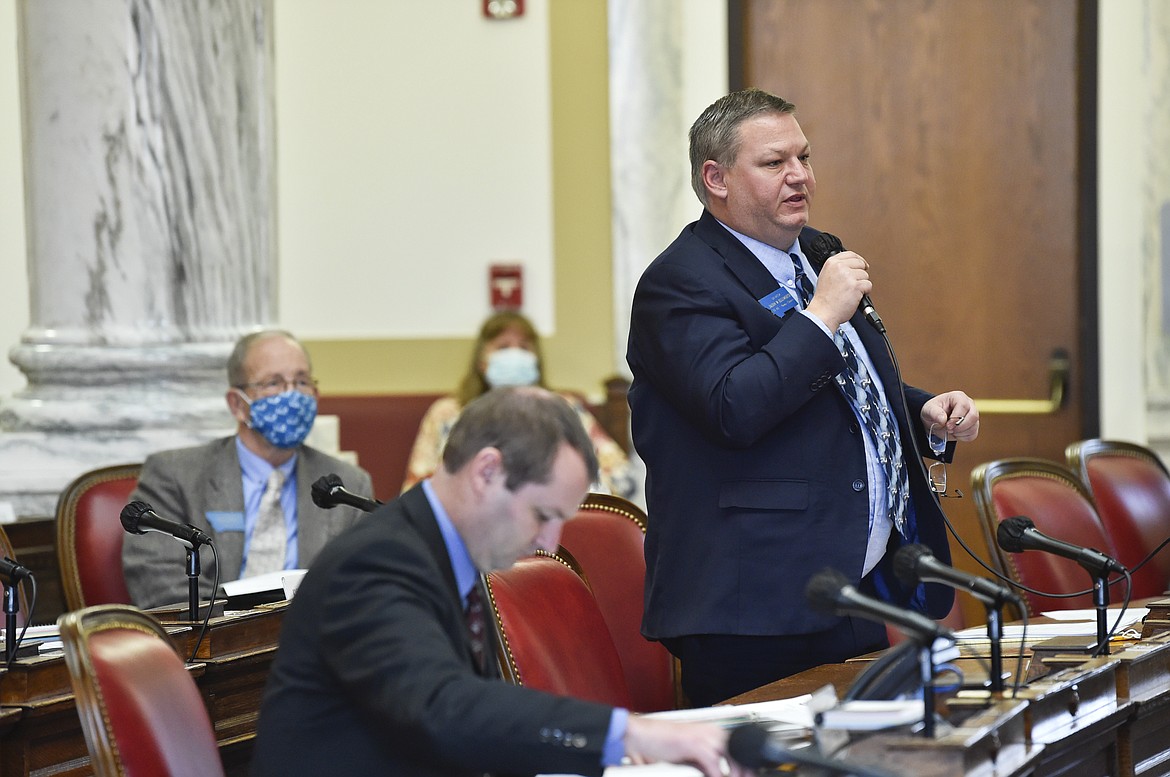Montana Legislature highly recommends face masks, for now
HELENA, Mont. (AP) — Montana's legislative leaders are highly recommending but not requiring face coverings for people participating in the Legislature, after Friday's initial meeting of the body's COVID-19 panel.
The group met less than 14 hours after committee chair, Republican Sen. Jason Ellsworth, announced that Republican Rep. David Bedey of Hamilton had tested positive for COVID-19. Bedey came into contact with someone with the virus prior to Monday's start of the legislative session, Ellsworth said.
Bedey, who has been wearing a mask at the Capitol, notified Republican leadership after learning his test results and plans to work remotely while he is quarantined, Ellsworth said. Bedey said he has no symptoms.
Despite the positive test, the Republican majority among House and Senate leadership rejected a mask mandate Friday, as Ellsworth noted remote participation in the sessions is allowed.
"No one, no legislator, no member of the public has to be in this building if they don't want to be and don't choose to be," he said.
"We have members in the Legislature representing just about every opinion on the pandemic and various safety precautions that exist throughout the state of Montana," Ellsworth said. "We're a very diverse group. Finding consensus is going to be difficult on this topic."
The panel voted 6-2, with both Democrats voting no, to temporarily accept Ellsworth's recommendations that masks be highly recommended and temperature checks highly encouraged for people entering the Capitol and that people with symptoms or awaiting a test participate in the Legislature remotely. They also agreed to wear masks while interacting with legislative staff in their offices.
The panel is scheduled to meet again Tuesday to discuss proposed changes to the guidelines.
Senate Minority Leader Jill Cohenour and House Minority Leader Kim Abbott both supported mask mandates and Cohenour wanted to require lawmakers who test positive for COVID-19 to identify themselves so people who have been a the Capitol could determine if they are at risk. Cohenour also supported surveillance testing, which lawmakers rejected while setting session rules.
People who called into the meeting to comment encouraged the panel to require masks and follow other public health guidelines while some suggested holding the entire session remotely. They reminded lawmakers that more than 85,500 residents of the state are known to have had COVID-19 and more than 1,000 have died due to complications of the respiratory virus.
Other callers asked for prevention measures intended to limit the strain on health care facilities and workers.
Juliet Williams, a teacher from Shepherd who is immunocompromised and has been teaching her students remotely since March, said: "It's been very hard for me to see other people not taking my health seriously. When people say that only a certain percentage of people get sick and die. I am that percentage and it's very hard for me to be taking all of the measures necessary and to see other people flaunting them."

